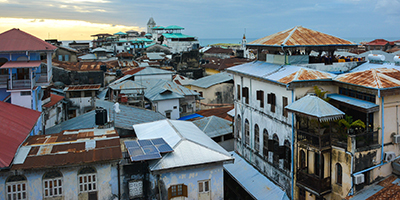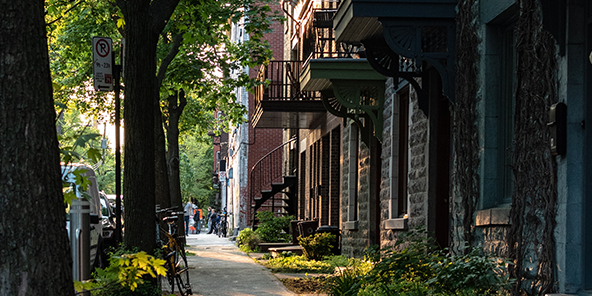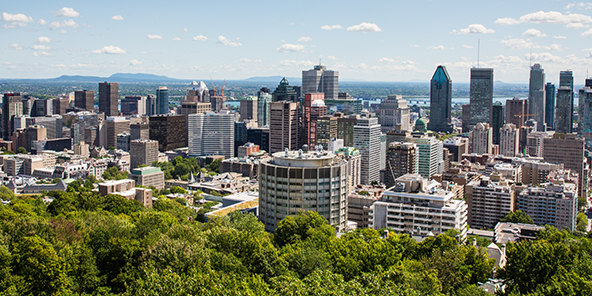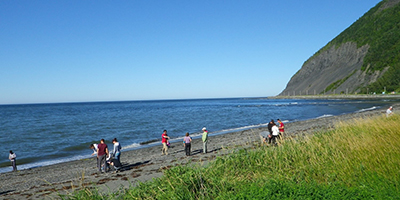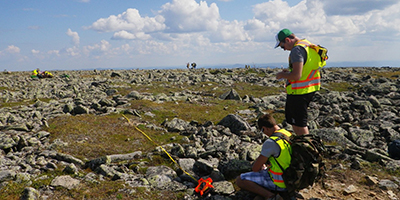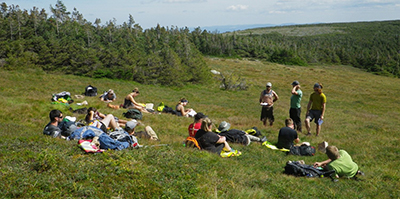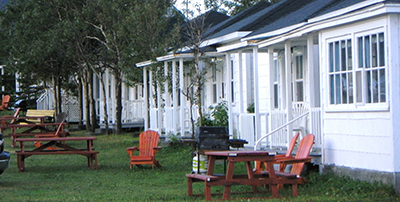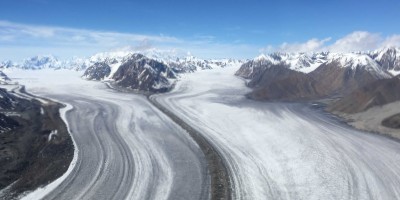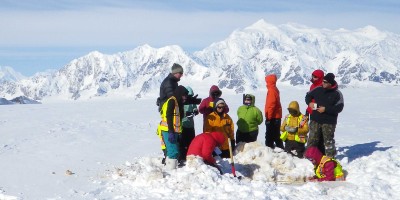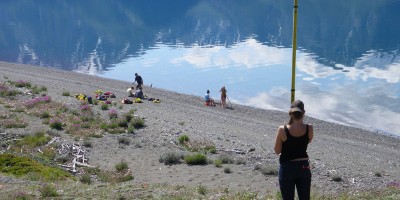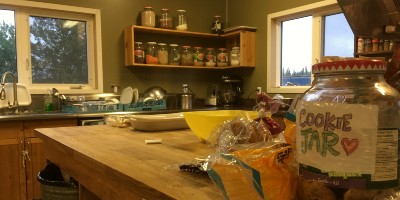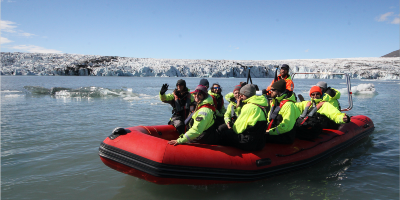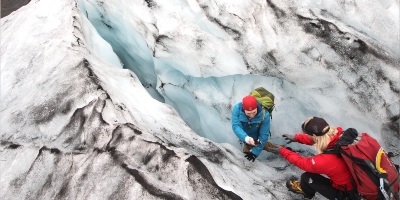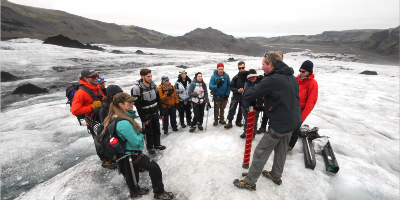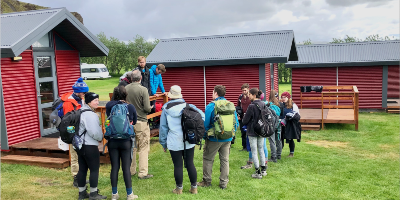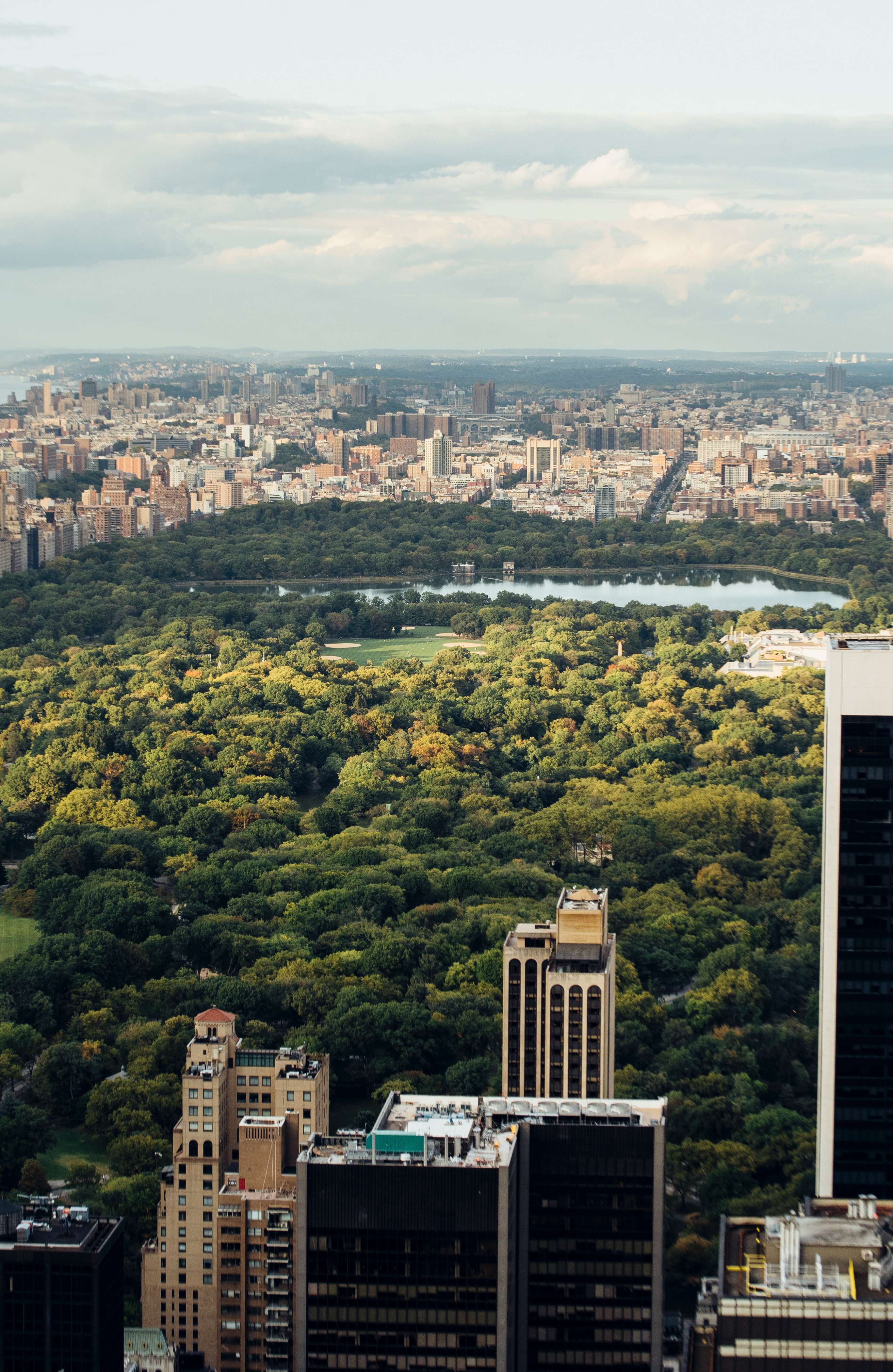Students enrolled in a Major or Honours Bachelor's program complete two field courses: GEG/ENV 2918, an introduction to field research, and one of the fourth-year Advanced optional courses, regardless of their specific program. Students may also choose to take additional Advanced field courses if they wish.

Field courses and excursions
Take part in three hour-long excursions in Ottawa’s region to study hydrology, landscapes or past environments. For more immersive field experience, leave on a multi-day field course to study Urban Geography in Montreal, Environmental change in the Georgian Bay area, Cold environments in Gaspésie, Canada’s North in the Yukon, Glaciology in Iceland or Tropical Coastal Environments in Zanzibar. Take a once-in-a-lifetime opportunity to study in a transformative learning environment.
This page provides information on 1. Local Excursions which we run from campus, 2. the Introduction to Field Research course, 3. Advanced Field Courses in Canada and 4. Advanced International Field Courses.
Short local excursions
Get a little adventure in your day! Many of our classes offer short excursions that allow you to learn about and experience the Ottawa region’s geography and environment. Head out for a short field trip and be back in time for your next class.
GEG 2301 Geomorphology (3 units)
To better understand the physical environment, the Earth on which we live. Geomorphology helps us understand how landscapes are formed and how they change over time. It helps to understand and explain natural and man-made disasters. Although ambitious, the main objectives of this course are achievable: 1. to learn to observe landscapes and recognize the landforms that make them up, 2. to understand the genesis as well as the past and future evolution of these landforms, with the aim of 3. developing a solid understanding of the morphology of natural landscapes and their sensitivity to contemporary changes.
Course includes laboratory and field work.
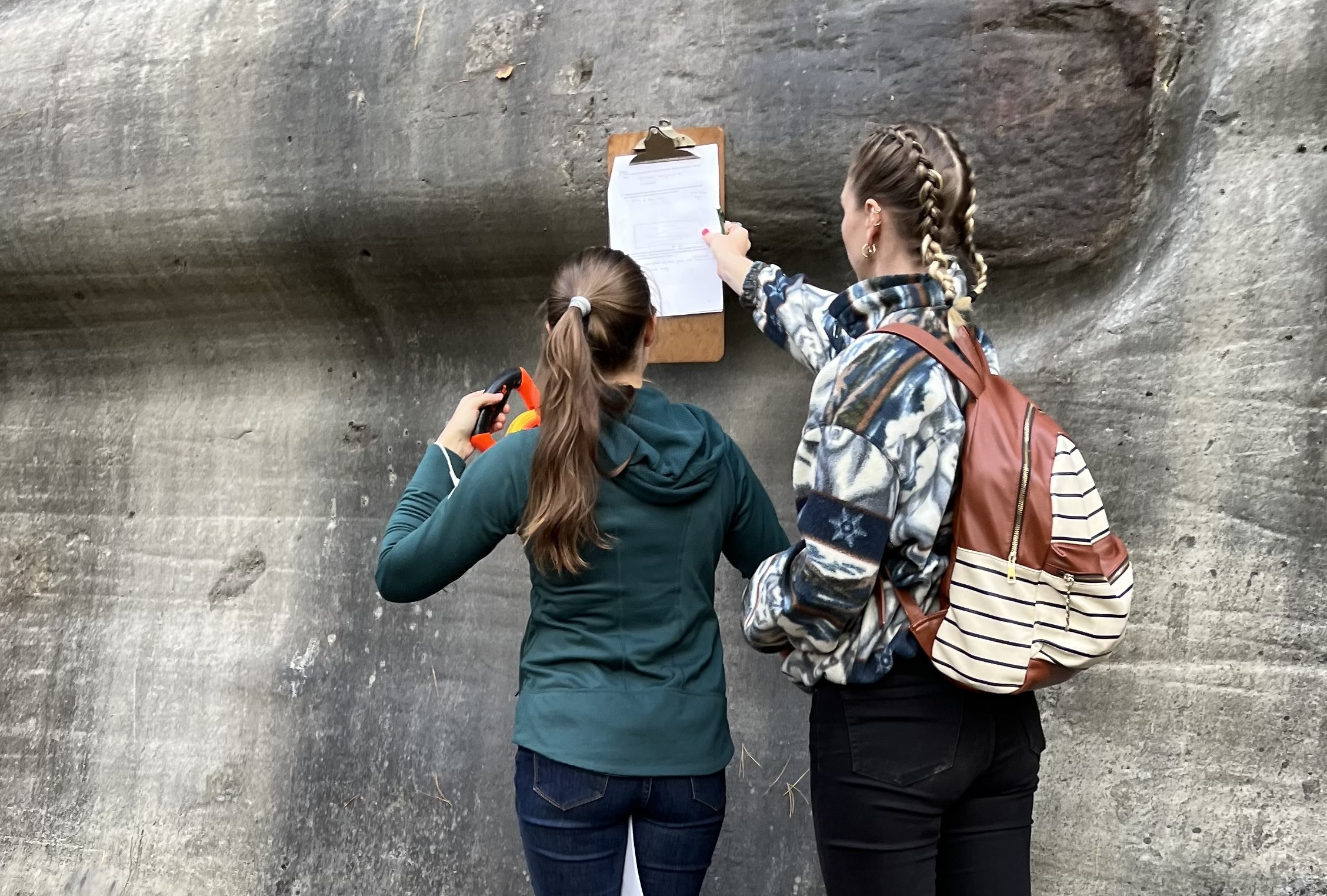
GEG 3101 Advanced Geomorphology (3 units)
Go further in your understanding of landforms and processes.
Description: Earth surface processes and landforms, including slope processes, fluvial erosion, transportation and sedimentation. Analysis of deposits and forms in relation to energy regimes.
Course Component: Laboratory, Lecture.
Prerequisite: GEG 2301. Course includes laboratory or field work.
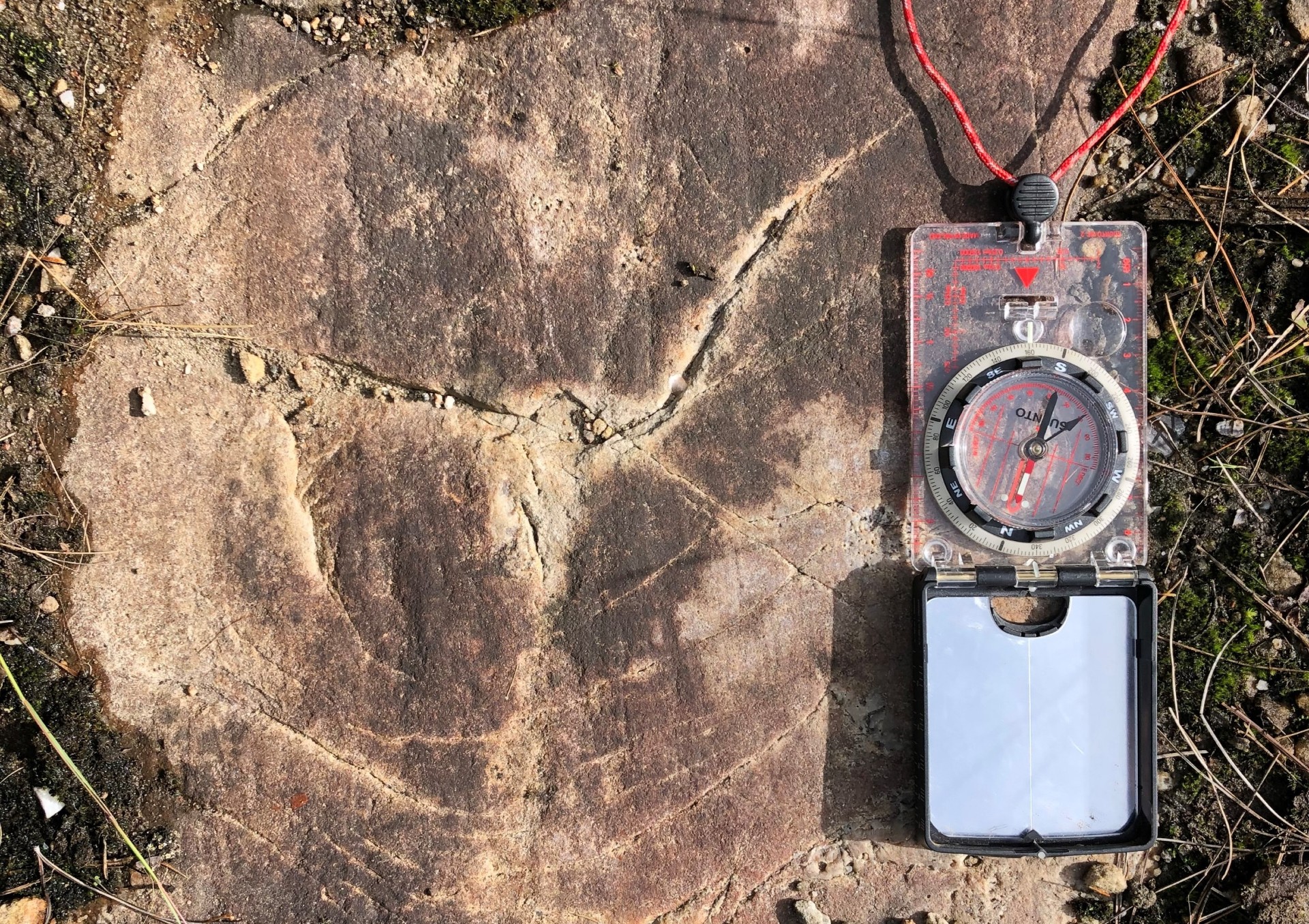
GEG 3102 Hydrology (3 units)
Water on Earth. Water, a valuable resource that plays a key role in the global energy balance and climate, an agent that shapes the landscape through weathering and erosion, and impacts our lives when rivers flood. Students will learn hydrologic measurements and data sources, the hydrological cycle: from evaporation to runoff, watershed hydrology and hydrograph separation, and explore some landscapes shaped by water. By the end of the course, students will be able to tackle key concepts that relate to water on Earth and its management.
Prerequisite: GEG1301 or EVS1101. Course with laboratory and field work.
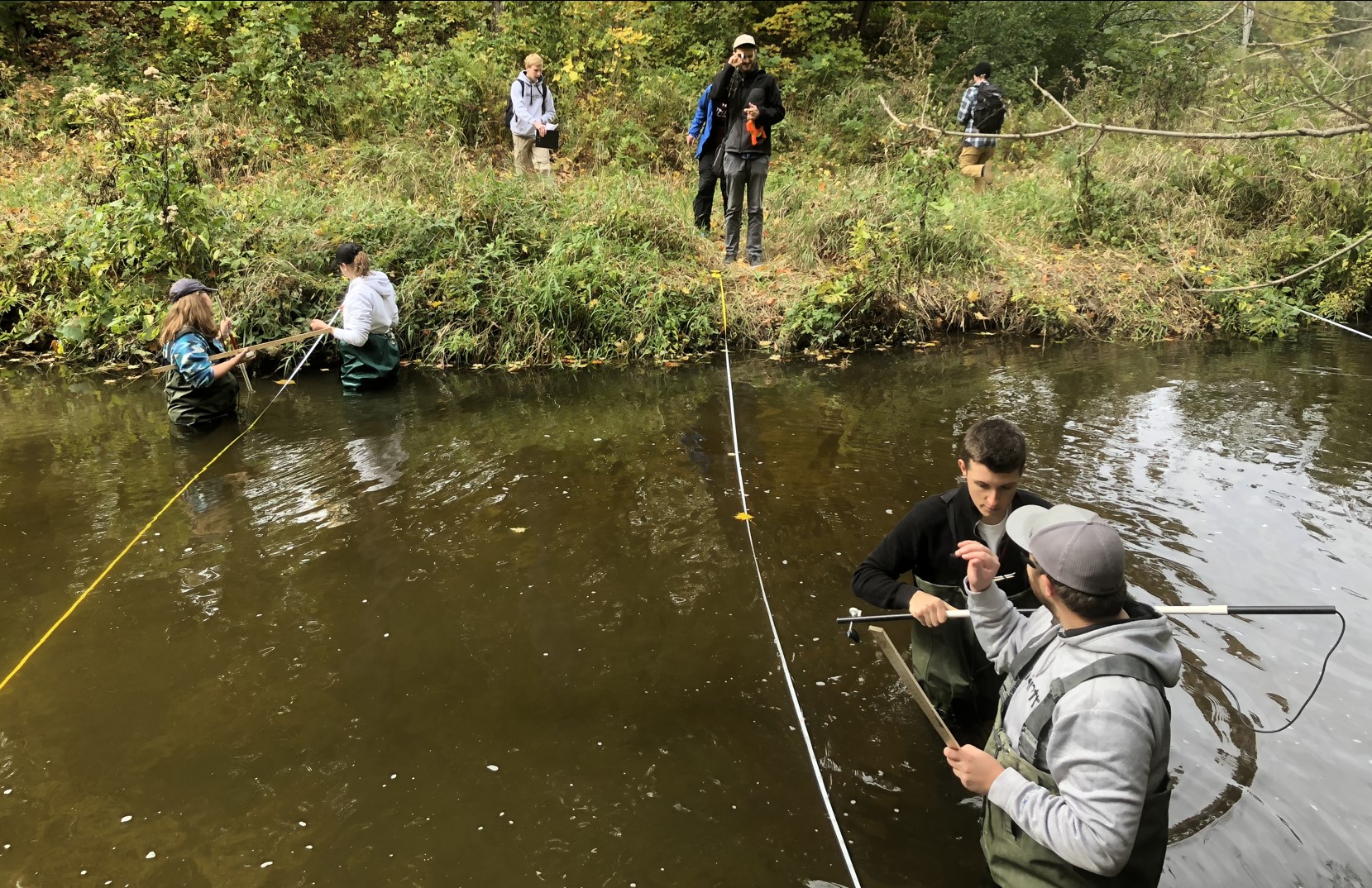
GEG 3306 Quaternary Paleogeography (3 units)
Dig into the past and explore evidence of our region’s past landscapes.
Description: Scales of climatic change and impacts on the global environment. Paleo-biogeography. Glacial and interglacial cycles. Methods of analysis of environmental change.
Course Component: Laboratory, Lecture.
Prerequisite: GEG 1301 or GEO 1111 or GEO 1115. Also offered as GEO 2334. Course includes laboratory or field work.
Your introduction to field research
GEG / ENV 2918 Introduction to Field Research (3 units)
Undecided between physical geography, human geography, or environmental studies? This week long field course offers the opportunity to experience field research in physical geography, human geography, and environmental studies. All students from our various programs come together and take part in this course which hosts up to 75 students at Camp Awacamenj mino in the Gatineau Hills near Ottawa. You will spend time in nature, work with instruments and learn many different field techniques, connect with your cohort and possibly make lasting friendships.
Dates: August 26 to September 2, 2025. Registration for this course must be done before July 1, for late registration contact the professor.
Incidental fees: Visit uOttawa website for up-to-date information.
Prerequisites: GEG1301 and either GEG1302 or ENV1101. Priority given to students registered in the Honours, in the Joint Honours, in the Major in geography or in environmental studies.
Information: Please contact Sonia Wesche.
Students enrolled in a major or honours bachelor's degree take two field courses: GEG/ENV 2918 which is an introduction to field research and, regardless of their program, any of the fourth year Advanced optional field courses. Students may, if they wish, take two Advanced optional field courses.
Why there?
As has been the tradition for many years, the fall field camp GEG/ENV 2918 will take place at Awacamenj Mino camp on the shore of Lac de l’île (Lake Isabel) about 75 km north of Ottawa, near Low, Qc. The camp is approximately 750 acres in extent and offers outdoor and wilderness activities to various users.
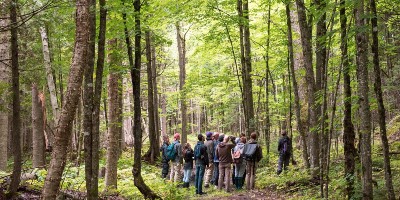
What will I do?
You will participate in three two-day workshops. One on physical geography during which you will study Lake de l’île physical and chemical environment. The second one on human geography focuses on the influence of the physical, socio-cultural, and economic environments on aspects of well-being. The third workshop studies the Camp’s user needs and possibility of expansion from an environmental point of view
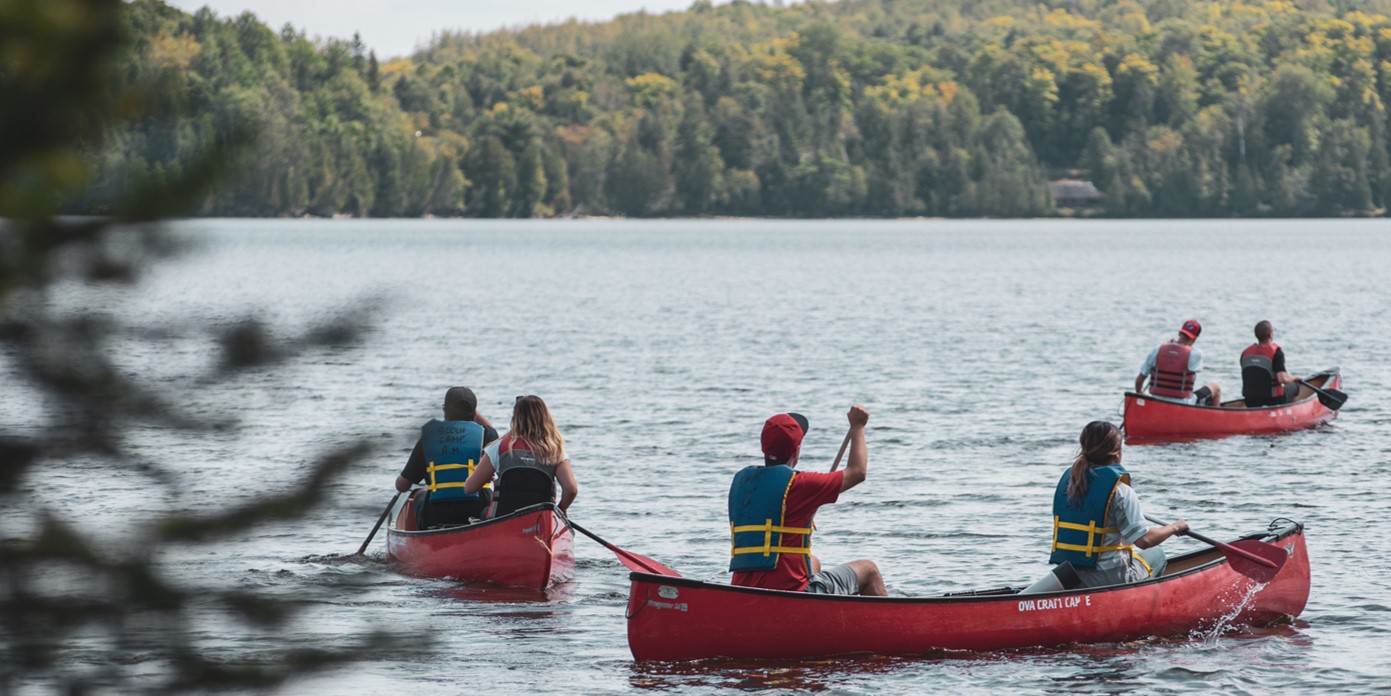
What will I learn?
Students will have the opportunity to learn how to collect and analyze data in the field, and discuss approaches to research.
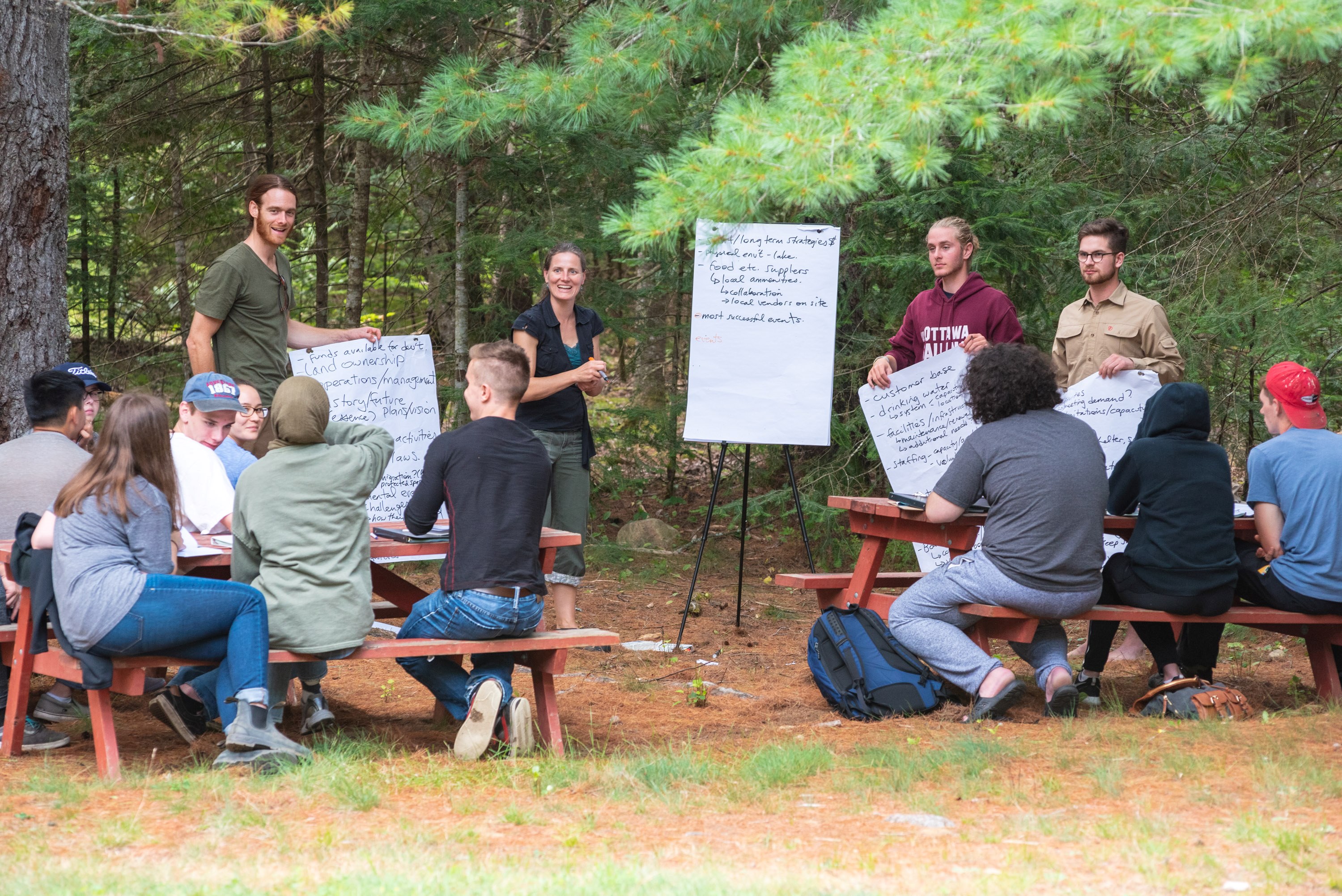
Where will I stay?
Participants will stay at Awacamenj Mino camp, situated on Lac de l’Île, west of Low, Quebec. The accommodations are single beds and bunks in dormitories holding from 8 to 20 students. All meals are included and showers are available at any time. You may bring your own tent and camp by the lake.
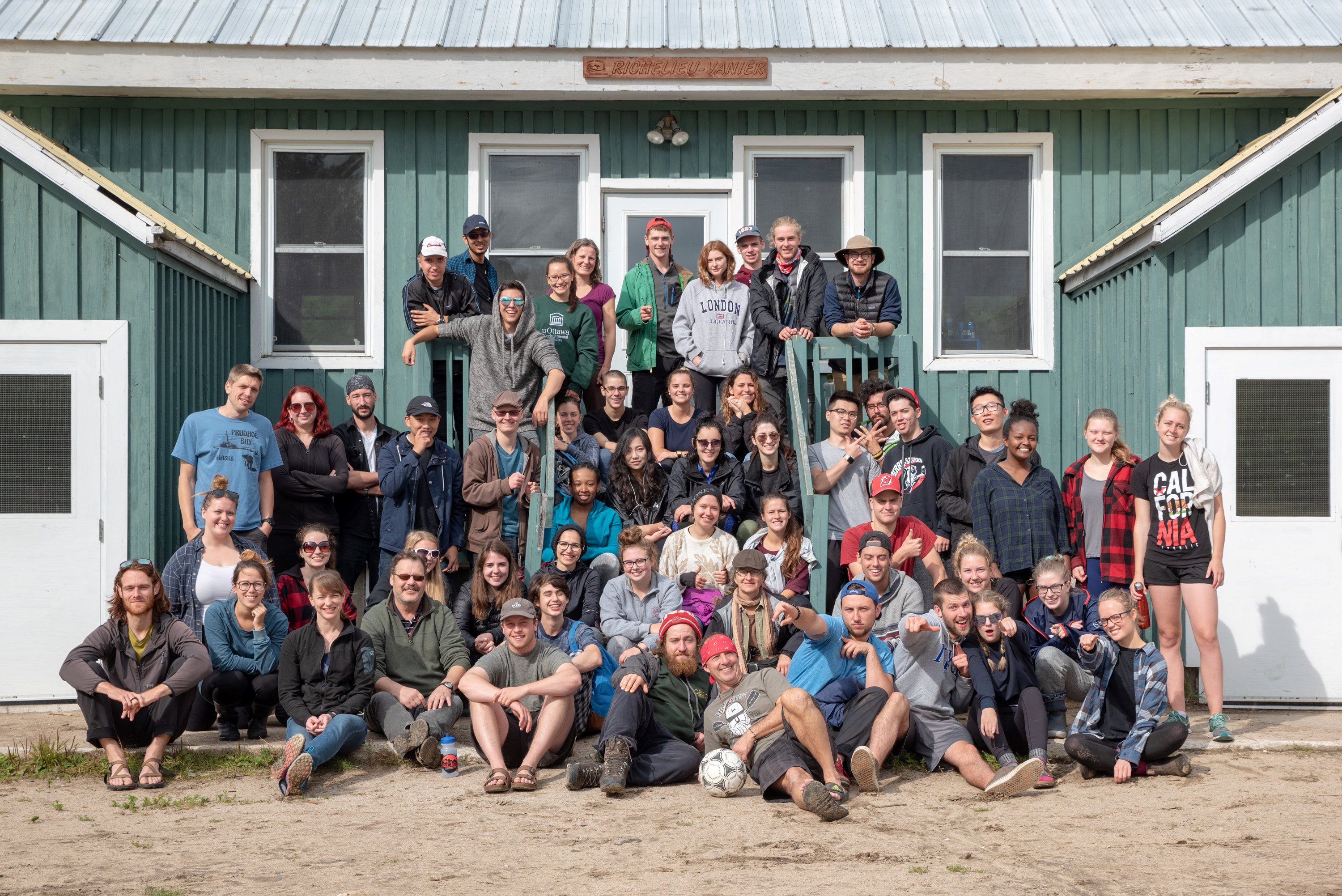
Advanced Field Courses in Canada
ENV 4910 Environmental Studies Field Research in the Georgian Bay Area (3 units)
Set in the Georgian Bay area, this 4th year field camp is addressed to students with strongest interest in environmental studies. This six day field course focuses on environmental change and its implications for Parks and Protected Areas management.
Dates: Please contact us
Incidental fees: Visit uOttawa website for up-to-date information.
Prerequisite: ENV 2918. Priority is given to students registered in the Honours or Major in Environmental Studies or in Geography. This course satisfies the fourth year field course program requirements for GEG and ENV students.
Information: Please contact us
Students enrolled in a major or honours bachelor's degree take two field courses: GEG/ENV 2918 which is an introduction to field research and, regardless of their program, any of the fourth year Advanced optional courses. Students may, if they wish, take two Advanced optional field courses.
What will I do?
While on the field course you will take part in a variety of classroom and experiential activities including a day hike down to Cedar Springs and a visit with Parks Canada employees. You will also have the chance to participate in optional activities such as camp fires, canoeing, kayaking, sailing, and swimming.
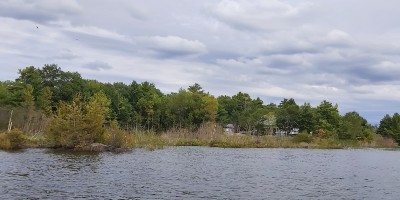
Why there?
The field portion of the course will take place in Georgian Bay Islands National Park which consists of 63 small islands or parts of islands in Georgian Bay, near Port Severn, Ontario. The park is 13.5 km2. We will be staying on the largest island of the National Park – Beausoleil Island. The region is famous for its island chains, exposed rocks and wind swept pine trees of the Canadian shield. The park can only be reached by boat. We will be transported to the island from the Honey Harbour Boat Club Marina.
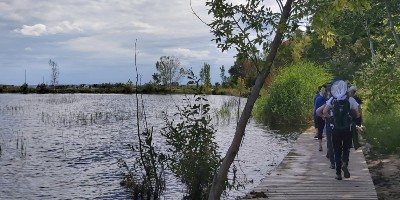
What will I learn?
In this field-based course, we will take an in-depth look at; 1) the role parks and protected areas play in mitigating climate change, and 2) the implications that climate change pose for protected areas and their management. We will explore the concepts of mitigation, adaptation, policy, and governance in the context of parks and protected areas in Canada. We will engage in experiential learning and have the opportunity to discuss these challenges with several stakeholders of Georgian Bay Islands National Park.
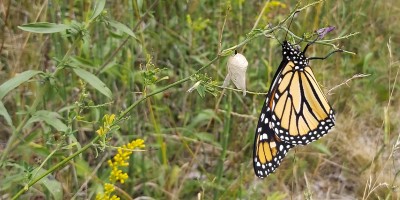
Where will I stay?
Accommodations are at the YMCA-YWCA Camp Queen Elisabeth located on beautiful Beausoleil Island. You will be staying in rustic cabins in bunk beds with several other classmates. Washrooms with flushing toilets and washstands are located nearby the cabins. There is also a dining hall where all meals will be served. Because the camp is located within a National Park, camping in tents or sleeping anywhere outside the established cabins is not permitted.
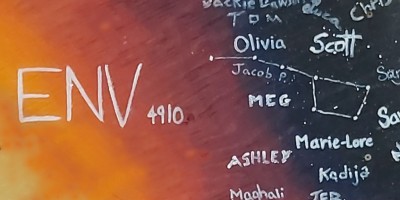
Advanced International Field Courses
GEG 4000 / ENV4002 Tropical Field Research in Zanzibar (6 units)
During this 2-week long course (6 course units) you will learn how to combine field data collection with GPS, GIS and Remote Sensing technology to study spatial ecology on land and in the water. Also, you will study the cultural heritage of this island which has been at the crossroad of many different cultures for the past centuries. You will discover Zanzibar, its natural coastal environment and rich cultural heritage.
Dates: This course typically takes place in July but is offered on alternating years with GEG4000 and GEG4100.
Prerequisites: Permission of the Department. This course satisfies the fourth year field course program requirements for GEG and ENV students.
Information: Please contact Anders Knudby
Students enrolled in a major or honours bachelor's degree take two field courses: GEG/ENV 2918 which is an introduction to field research and, regardless of their program, any of the fourth year Advanced optional courses. Students may, if they wish, take two Advanced optional field courses.
Why there?
Zanzibar is a cultural crossroads that has served as the epicentre of trade along the East African coast for centuries, including as a slave trade hub and a globally important producer of spices. Today its cultural heritage as well as its natural landscapes, including its beaches and coral reefs, are the foundations of a tourism economy. There’s plenty to experience, study, and learn, in this fascinating place. Karibu Zanzibar!
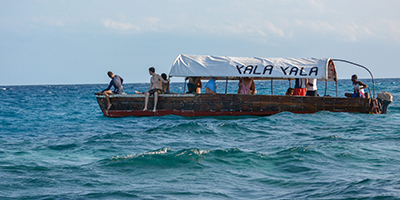
What will I do?
The field course is divided into two sections – one focused on the cultural heritage of the island, the other on its natural coastal environments. On this course you will learn practical tools and techniques to study both. These include survey and interview techniques, as well as identification of coastal flora and fauna, above-water and in-water monitoring, and basic data analysis and visualization.
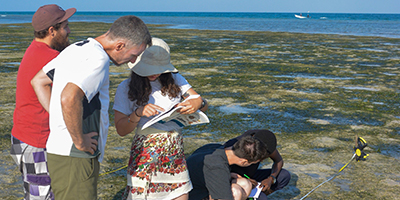
What will I learn?
Most of all, this course will expose you to a culture that is unlike anything found in the Western world. You will learn how the Zanzibari live, what they eat, how they work, and what they care about. You will also learn how to do research to investigate these things in a scientific manner, and you will learn how to map and monitor the environments on which the Zanzibari economy depends.
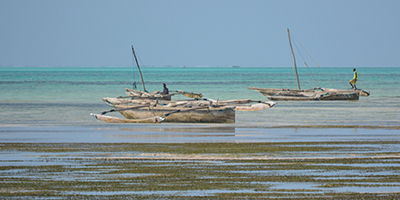
Where will I stay?
We will spend most of our time in Stonetown, the ancient Zanzibari capital city – specifically in a place called Kiponda B&B, which is located near the port in an old mansion. We will spend our days out and about, either in Stonetown or in smaller towns around the island. One day will be spent on Chumbe Island, a flagship ecotourism project sure to blow your mind.
